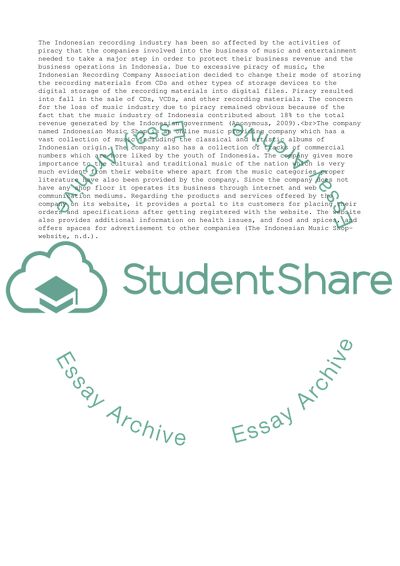Cite this document
(“Strategic Business Plan for the Indonesian Music Shop Assignment”, n.d.)
Strategic Business Plan for the Indonesian Music Shop Assignment. Retrieved from https://studentshare.org/business/1732298-strategic-business-plan
Strategic Business Plan for the Indonesian Music Shop Assignment. Retrieved from https://studentshare.org/business/1732298-strategic-business-plan
(Strategic Business Plan for the Indonesian Music Shop Assignment)
Strategic Business Plan for the Indonesian Music Shop Assignment. https://studentshare.org/business/1732298-strategic-business-plan.
Strategic Business Plan for the Indonesian Music Shop Assignment. https://studentshare.org/business/1732298-strategic-business-plan.
“Strategic Business Plan for the Indonesian Music Shop Assignment”, n.d. https://studentshare.org/business/1732298-strategic-business-plan.


